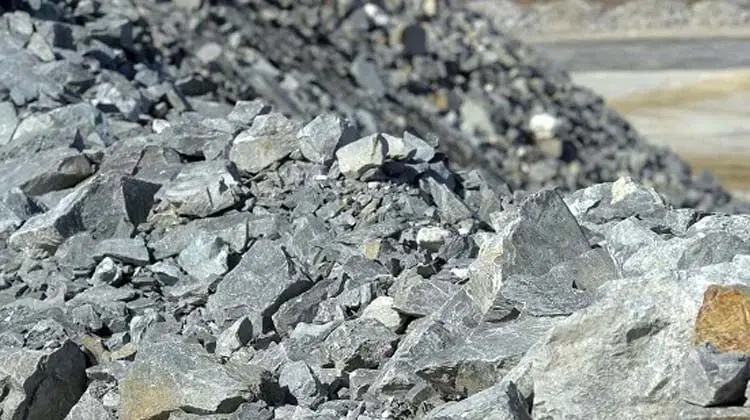Despite Nigeria’s vast lithium deposits, local investors appear sidelined in the country’s rapidly expanding lithium mining and processing industry — a sector now valued globally at $92 billion annually.
Lithium (Li), a key mineral for renewable energy, electric vehicles (EVs), and energy storage, has become one of the world’s most strategic natural resources. As the global economy shifts toward clean energy and away from fossil fuels, Nigeria’s lithium reserves are being increasingly recognised as critical to driving modern, sustainable economic growth.
Estimates suggest that Nigeria’s lithium deposits — located mainly in Nasarawa, Kaduna, Niger, Kwara, Kogi, and Ekiti States — are worth over $34 billion, forming part of the global $500 billion proven reserves.

However, sources within the Ministry of Solid Minerals Development told Financial Vanguard that foreign, China-led investors have taken the dominant role in the exploration and trade of these resources, particularly across the North-Central states, which hold over 70% of Nigeria’s known deposits.
Currently, no major Nigerian investor is significantly active in the sector, apart from small-scale artisanal miners.
Chinese Companies Lead the Charge
Two Chinese companies — Avatar and Ganfeng — have taken early control of the lithium business in Nigeria.
-
Avatar, the first to establish operations, has a processing capacity of 4,000 metric tons per day.
-
Ganfeng, the second, has nearly completed a 6,000 MT facility, awaiting commissioning.
According to industry sources, most of the lithium extracted in Nigeria is exported to EV battery manufacturers in Shenzhen and Guangdong (China), Tamil Nadu (India), Seoul (South Korea), and Osaka (Japan), among other industrial centres in East and South Asia.
Experts argue that Nigeria will only benefit from this booming global demand if local investors become active participants and if the government enforces the Solid Minerals Value-Chain Regulations, which promote local processing and discourage raw mineral exports.

Why Local Investors Are Missing Out — Muda Yusuf
Dr. Muda Yusuf, Executive Director of the Centre for the Promotion of Private Enterprise (CPPE), explained that Nigeria’s limited domestic participation in the lithium industry stems from lack of awareness, capacity, and government support.
“It’s all about investment and strategy,” Yusuf said. “Nigerians aren’t deeply aware of this sector, and those who are lack the capacity or willingness to take the associated risks.”
He emphasized the need to begin with primary production, expand capacity, and gradually introduce policies that promote local processing.
“We can’t insist on local processing from the start; that would discourage investment. The government must help de-risk the industry by providing geological data and technical support,” he added.
Yusuf also highlighted the link between insecurity and illegal mining, saying criminal groups often exploit mineral-rich areas, deterring legitimate investors.
He noted that global finance now favours clean energy projects such as lithium mining over fossil fuel ventures.
“The world is going electric — from vehicles to energy storage. In a few years, many countries will phase out combustion engines entirely. That’s why lithium is the future,” he said.

“Make the Sector Friendly to Local Investors” — MAN
The National President of the Miners Association of Nigeria (MAN), Dele Ayanleke, called for a friendlier business environment to attract Nigerian investors.
He pointed to the regulatory gap between the federal and state governments, noting that only the federal government issues mining licences, often sidelining local authorities.
“We must streamline regulatory frameworks and ensure that state governments can partner with investors to guarantee that lithium projects contribute to local development,” Ayanleke said.
He added that foreign companies should not be allowed 100% ownership of mining ventures, urging the government to reserve significant participation for local investors.
“In countries like China, foreigners cannot own mining assets outright. We should adopt similar protection for our interests,” he noted.
Ayanleke also called on financial institutions to acquire technical knowledge of the mining sector to enable them to support indigenous investors.
“Banks in other parts of the world actively fund mining. Nigerian banks must learn to do the same,” he said.
According to Samuel Agya, Special Adviser to Governor Abdullahi Sule of Nasarawa State on Mining and Solid Minerals Development, Nasarawa now hosts Nigeria’s largest lithium processing plant.

He credited Governor Sule’s proactive investment drive for attracting global investors, especially from China.
“Lithium mining was largely unknown in Nasarawa until Governor Sule began aggressive campaigns to attract investors,” Agya explained.
The state currently houses:
-
Avatar’s lithium processing plant, commissioned by Senate President Godswill Akpabio, and
-
Ganfeng’s $200 million lithium factory, now 90% complete, and expected to be one of West Africa’s largest.
Agya urged the federal government to deregulate the solid minerals sector, allowing states more control to monitor and curb illegal mining while promoting investment.
However, a senior official of the Ministry of Solid Minerals Development, who spoke on condition of anonymity, said the federal government currently has no specific policy on lithium investment.
“There is no special policy for lithium. It is treated like every other mineral,” the official said. “All minerals are under one general regulatory framework.”
While Nigeria’s lithium deposits have drawn global attention and investment, foreign companies, particularly from China, dominate the sector. Without deliberate efforts to empower local investors, enforce value-chain policies, and ensure security and transparency, Nigeria risks missing out on one of the century’s most profitable resource booms.




